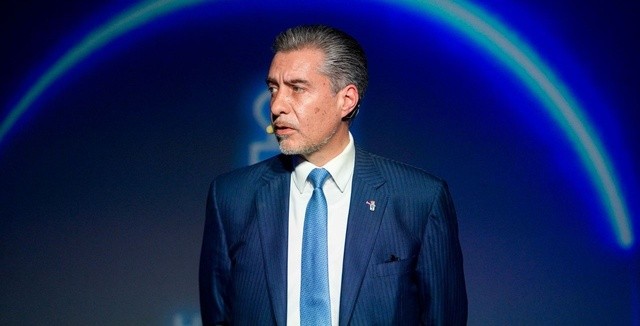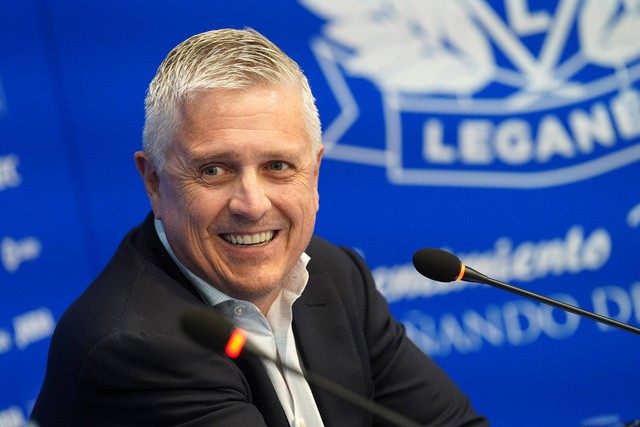Villarreal CEO: We depend more on Europe, player sales and TV than ticketing these days

PR | CEO Fernando Roig Negueroles has been a member of the Villarreal CF administrative board since 2005.
Villarreal CEO Fernando Roig Negueroles explains why coming from a small city is not a barrier to success, emphasising the importance of European football qualification and smart player trading as key to maintaining the club’s competitive level.
Among six comparable LaLiga clubs, Villarreal has generated the most profit from player sales over the past five years — while operating with by far the lowest matchday revenue.
Why it matters: With football revenues increasingly decoupled from stadium size and local demographics, Villarreal offers a compelling case study in how a well-run club can thrive globally from a small domestic base.
The perspective: As the European football landscape polarises further around mega-clubs, Villarreal represents a rare example of resilience, maintaining its position through steady performance and regular European competition.
12 June 2025 - 5:22 PM
Despite coming from a town smaller than most second-tier football clubs, Villarreal CF continues to outperform far bigger rivals both on and off the pitch.
Now, with Champions League football secured again after finishing fifth in LaLiga, CEO Fernando Roig Negueroles explains why being based in a small city is no obstacle to success.
And with the qualifications for next seasons edition of Europe’s finest tournament, Villarreal are set for another financial and sporting boost — one that Roig Negueroles does not underestimate.
“It can represent maybe a third or a quarter of the total income we will have next year. So, it's important,” he says.
Roig Negueroles is the son of Fernando Roig Alfonso – the club’s owner and president since 1997. Together, they’ve overseen one of the most remarkable stories in European football: a small-town club winning the Europa League in 2021 and reaching the Champions League semi-finals in 2022.
Competing from the shadows
Villarreal, a town of just 52,000 residents, stands in stark contrast to the major cities that typically dominate Spanish football. Roig Negueroles is well aware that Villarreal’s story challenges conventional logic. But as he points out, success in football doesn’t always correlate with city size or market scale.
He cites Zaragoza — Spain’s fifth-largest city — as an example. Despite its size, the city’s main club, Real Zaragoza, plays in the second-tier. For him, it’s a reminder that success in football isn’t dictated by geography, but by how a club is run, the strength of its image, and the consistency of its sporting decisions.
“It helps to be a big city, but it's not definite,” he says.
Especially internationally, Roig Negueroles states that the size of the city doesn’t matter — what truly counts is how the club is perceived.
“Abroad, it's not that important if you are a big or a small city. It's the image of the club that is important.”
As part of that international focus, Villarreal runs around 30 academies worldwide — with the highest number in the United States, and others across Asia, South America, and Australia — helping the club build recognition and strengthen its name abroad.
“We are opening many academies all around the world and we're growing and growing in that area,” he says.
The idea behind Villarreal's academies is to position the club's brand and name globally, driven by commercial reasons. Villarreal aims to be a club that believes in youth development, and they are committed to exporting that belief.
Should a player show exceptional potential, they are given the chance to be tested at the club's academy in Villarreal,
Easier than 20 years ago
The shifting economics of modern football have, in some ways, levelled the playing field for smaller-market clubs like Villarreal. As Roig Negueroles points out, revenue no longer depends primarily on local ticket sales — the main sources of income have moved elsewhere.
“20 years ago, clubs were depending more on ticketing than on TV-income. Right now, we depend more on TV, on getting into European competitions and on player sales.”
When asked who Villarreal see as their direct competitors, he points not to Spain’s traditional giants, but to clubs with similar economic realities: Real Sociedad, Real Betis, Athletic Club, Valencia, and Sevilla. Clubs who — like Villarreal — fight every year for a place in Europe just behind the financial firepower of Real Madrid, Barcelona and Atlético Madrid.
“If we play our cards well by being cleverer on selling players and getting more times into European competitions, then we can compete with them, but it's not easy. It's not easy at all.”
While one of those clubs, Valencia, is just under an hour away and based in Spain’s third-largest city, Roig Negueroles doesn’t see that as a challenge for Villarreal. On the contrary, he replies with a smile.
“It is hard for Valencia to be close to Villarreal, not the other way around”.
What exactly the club does differently or better than others, he can't quite pinpoint. He believes it’s the stability within the club, with people who have been there for many years, coupled with common sense, that contributes to their success.
The balancing act: Europe or sales
Sustaining that competitive edge and level of the squad comes with delicate trade-offs. Villarreal doesn’t hide the fact that European qualifications from time to time are crucial to maintaining their sporting level.
“If we do not qualify for Europe, we have to sell some players,” Roig Negueroles says and continues.
“We need to be in Europe, and we need to qualify for the Champions League once in a while to keep the same level in the squad as we have right now,” he says.
To formalise that ambition, the club has internal performance benchmarks that are unusually clear.
“Internally, our goal is that every five years, we have to be in Europe in at least four of them and one of them has to be in the Champions League.”
Despite the club’s European success in recent years, the memory of relegation back in 2012 still looms at Villarreal. It was a lasting reminder that stability in LaLiga cannot be taken for granted and top-flight stability comes before any continental ambition.
“So, our first goal is to be in the first division every single year, and after that it is trying to qualify for Europa as many years as possible,” he says.

